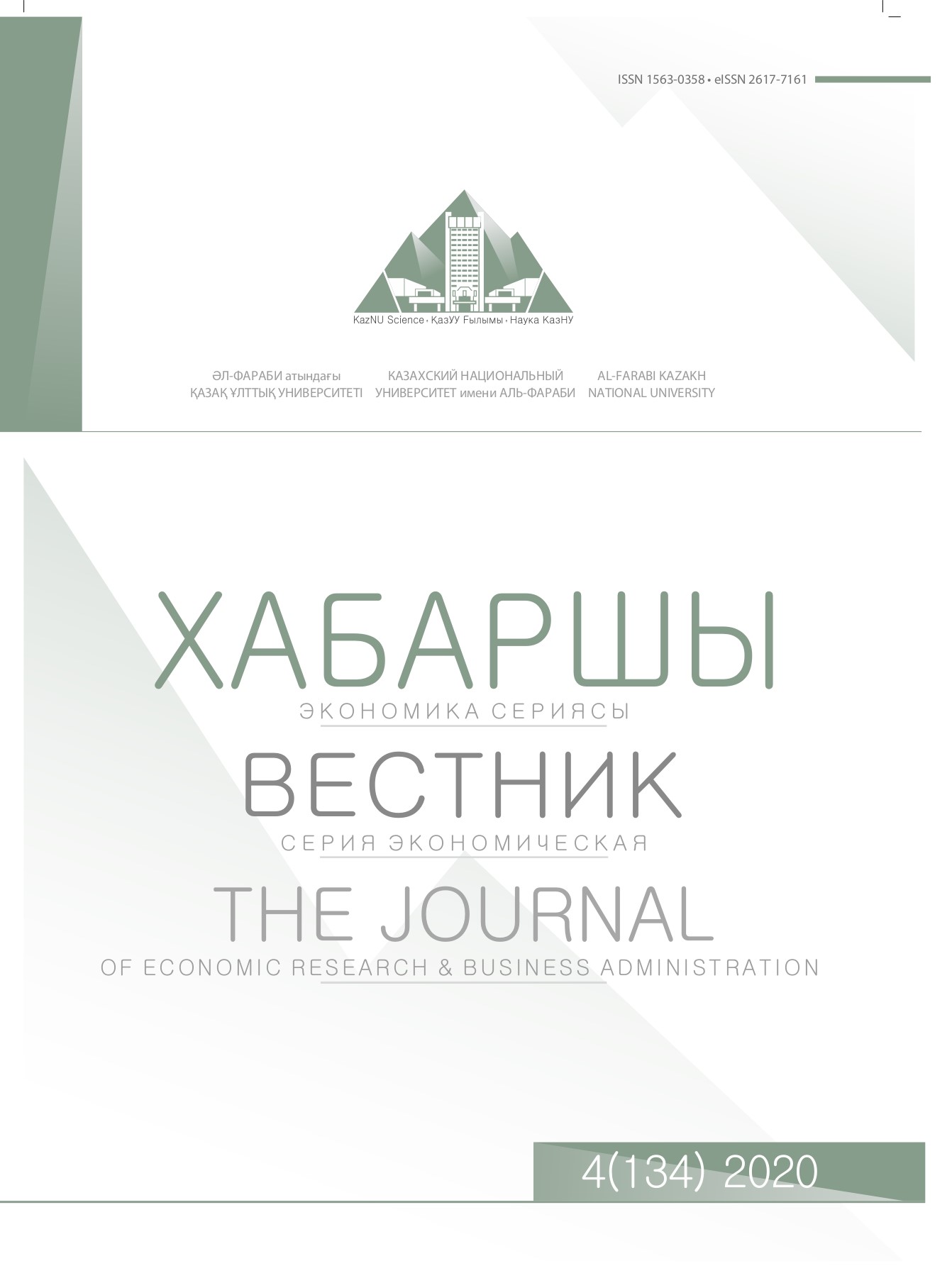Female board representation and provisioning practices in Nigerian banks
DOI:
https://doi.org/10.26577/be.2020.v134.i4.02Abstract
The removal of board members of deposit money banks (DMBs) in Nigeria with larger proportion of
male directors in the last decade (2009-2018) for corporate reporting and governance irregularities has
become commonplace. Also, the indifference of the extant corporate governance code in the Nigerian
banking industry to the gender diversity in the DMBs’ boards despite the global phenomenal nature
of the practice poses a lot of questions. Given these rationales, this study examined the influence of
female board representation on the practices of income smoothing via provision for loan losses. The
time-series cross-sectional dataset related to the variables of the study for a sample of 15 DMBs were
extracted from the annual reports of these banks for the period 2007-2018. Data collected were analysed
using Prais-Winsten regression model with correlated Panel-Corrected Standard Errors (P-W/PCSEs).
The results showed, on the whole, that the reduction in income-smoothing practices is engendered by
the extent of female board representation given the significantly negative coefficients of proportion of
female directors and Blau Diversity Index. Specifically, among the five continuous measures of female
representation, proportion of female directors and Blau Diversity Index explain better the reduction in
the income-smoothing practices. For five categorical female representation indicators, presence of at
least one woman in the audit committee (F1AD), presence of at least three women on the board and
having female chief financial officer (FCFO) are better predictors but that of F1AD is contrary to the prior
expectations. The study also established that the reduction in earnings-smoothing practices cannot take
place until a critical mass of female board members is present. The study solicited for the appointment of
at least three female directors and having female CFO on the DMBs’ boards among others.













